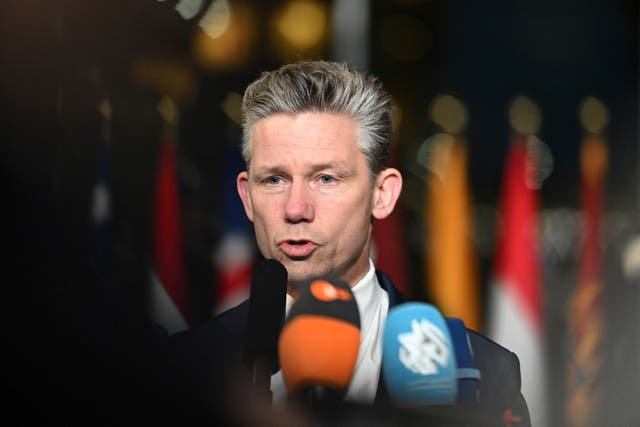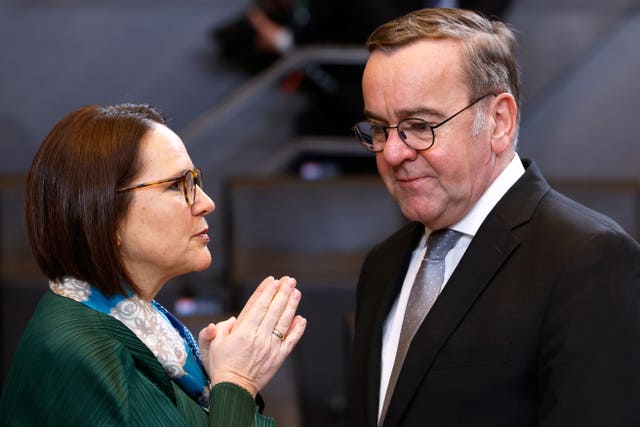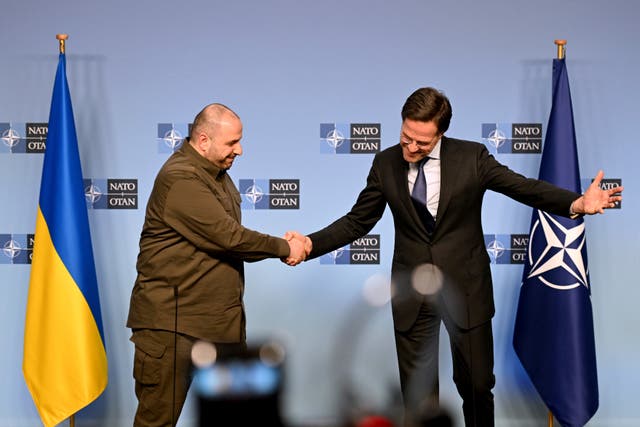Nato allies insist Ukraine and Europe must not be cut out of peace talks
US President Donald Trump signalled that he would soon hold talks with Russian President Vladimir Putin on ending the three-year war in Ukraine.

Several Nato allies have stressed that Ukraine and Europe must not be cut out of any peace negotiations as US defence secretary Pete Hegseth denied that the US is betraying the war-ravaged country.
European governments are reeling after the Trump administration signalled that it is planning face-to-face talks with Russia on ending the Ukraine war without involving them, insisted that Kyiv should not join Nato, and said that it is up to Europe to protect itself and Ukraine from whatever Russia might do next.
“For me, it’s clear… that Europe must be involved in the negotiations — and I think that’s very easy to understand,” German defence minister Boris Pistorius said as Nato’s 32 defence ministers met for talks on Ukraine in Brussels on Thursday.

Europe, he said, “will have to live directly” with the consequences, so “it goes without saying that we must be part of the negotiations”.
Mr Hegseth denied that the US has betrayed Ukraine by launching negotiations about its future without Kyiv’s full involvement.
After talks with Russian President Vladimir Putin and then Ukrainian President Volodymyr Zelensky, US President Donald Trump said on Wednesday he would “probably” meet in person with the Russian leader in the near term, possibly in Saudi Arabia.
“There is no betrayal there. There is a recognition that the whole world and the United States is invested and interested in peace. A negotiated peace,” Mr Hegesth told reporters.
The European Union’s foreign policy chief, Kaja Kallas, expressed surprise that Mr Hegseth and Mr Trump had listed what appeared to be concessions to Russia even before talks have begun in earnest.
“We shouldn’t take anything off the table before the negotiations have even started, because it plays to Russia’s court,” she said.

“Why are we giving them everything that they want even before the negotiations have been started? It’s appeasement. It has never worked.”
Mr Hegseth warned that the war in Ukraine must “be a wake up call” for Nato’s European allies to spend more on their own defence budgets.
Twenty-three of the 32 member countries were forecast to have met the organisation’s guideline of spending 2% of gross domestic product on their national defence budgets last year, but a third still do not.
But Mr Hegseth’s French counterpart, Sebastien Lecornu, described the wrangling over greater defence spending as “a false debate,” saying that governments and parliaments across Europe are already approving more weapons purchases and bigger military budgets while helping Ukraine stave off an invasion.
Mr Lecornu warned that the future of Nato itself is now in question.
“To say that it’s the biggest and most robust alliance in history is true, historically speaking. But the real question is will that still be the case in 10 or 15 years,” he said, after the US — by far Nato’s biggest and most powerful member — signalled that its security priorities lie elsewhere, including in Asia.

Nato secretary general Mark Rutte, who was chairing Thursday’s meeting, said that whatever agreement is struck between Russia and Ukraine, it is crucial that the “peace deal is enduring, that Putin knows that this is the end, that he can never again try to capture a piece of Ukraine”.
Touting Europe’s investment in Ukraine, Swedish defense minister Pal Jonson said European nations provided about 60% of the military support to Kyiv last year and must be involved, especially given US demands that Europe take more responsibility for Ukraine’s security in the longer term.
“It’s very natural that we’re engaged into the discussions,” Mr Jonson said.
His Estonian counterpart, Hanno Pevkur, underlined that the European Union has driven sanctions against Russia, has invested heavily in Ukraine’s defence, and will be asked to foot the bill for rebuilding the war-ravaged country.
“We have to be there. So there is no question about it. Otherwise this peace will not be long lasting,” Mr Pevkur warned.





